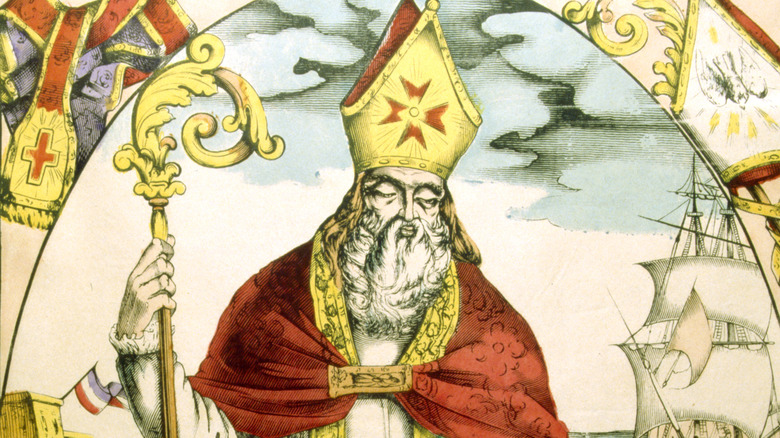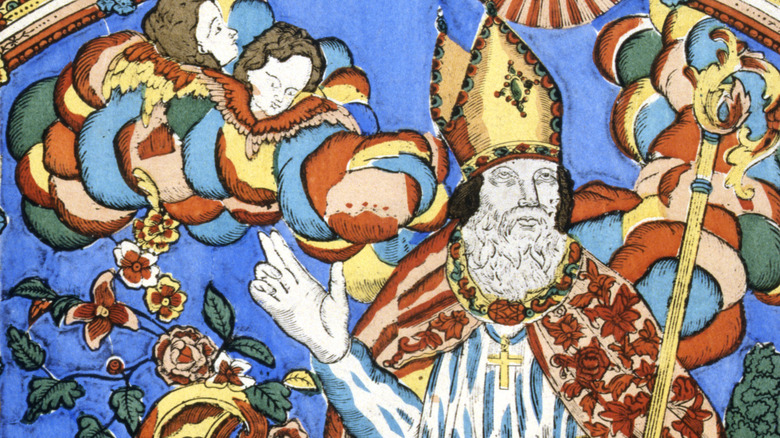Did Saint Nicholas Really Exist?
We may receive a commission on purchases made from links.
Some people have a hard time believing that a jolly old man in a red suit makes his way around the world overnight on a sleigh driven by flying reindeer to deliver presents in time for Christmas morning. He has a lot of names — Santa Claus, Kris Kringle, Father Christmas, Sinterklaas, among others. But St. Nicholas of Myra was a real man. Granted, all the lore associated with him may not be entirely true, but Saint Nicholas truly existed. Known for helping the needy, he was a Christian bishop who lived and died in what is now Turkey during the first half of the fourth century, per Biography.
As a young man, Nicholas had inherited a significant sum of money, and took great joy in giving gifts. Later, as an adult, he learned of a man in town who had three daughters — all of them on the brink of destitution. Nicholas bagged up some gold, and in the middle of the night, he anonymously chucked the heavy sack through the family's window. Nicholas repeated his gesture two more times. The story soon made the rounds with the added detail that Nicholas had dropped the final bag down the chimney, where it magically landed in a stocking drying by the fire. According to Mental Floss, this story and others like it spread around the world by sailors who believed they were protected by Nicholas. Within a century of his death, he had become a saint.
The spirit of Saint Nicholas grows
Throughout Europe, the spirit of Saint Nicholas had begun to flourish. In 12th century France, nuns had begun making gifts and leaving them for children signing them "from Nicholas," according to St. Nicholas Center. However, it wasn't for another few hundred years that St. Nicholas and his traditions would be connected to the birth of Jesus (St. Nick's Day is celebrated on December 6) for Christmas celebrations. Santa Claus was first introduced in the United States in the early 19th century — the result of prominent New Yorkers wishing to reestablish a part of their European heritage in their new country. "They were looking for roots, they were looking for traditions," Adam English, a professor at Campbell University and author of "The Saint Who Would Be Santa Claus," told NPR. "They turn to their Dutch heritage, and to be Dutch is to celebrate Sinterklaas — celebrate St. Nicholas."
In recent decades, gift-giving may have become costly and even excessive, but some form of the tradition is central to the practice of Saint Nicholas. And, according to English [via NPR], if we truly want to embrace his message, it's important to "not only give gifts to our family, those that we love and those that we know" but also "beyond our family walls to those who we don't know, who we don't love, and to include them as well."

